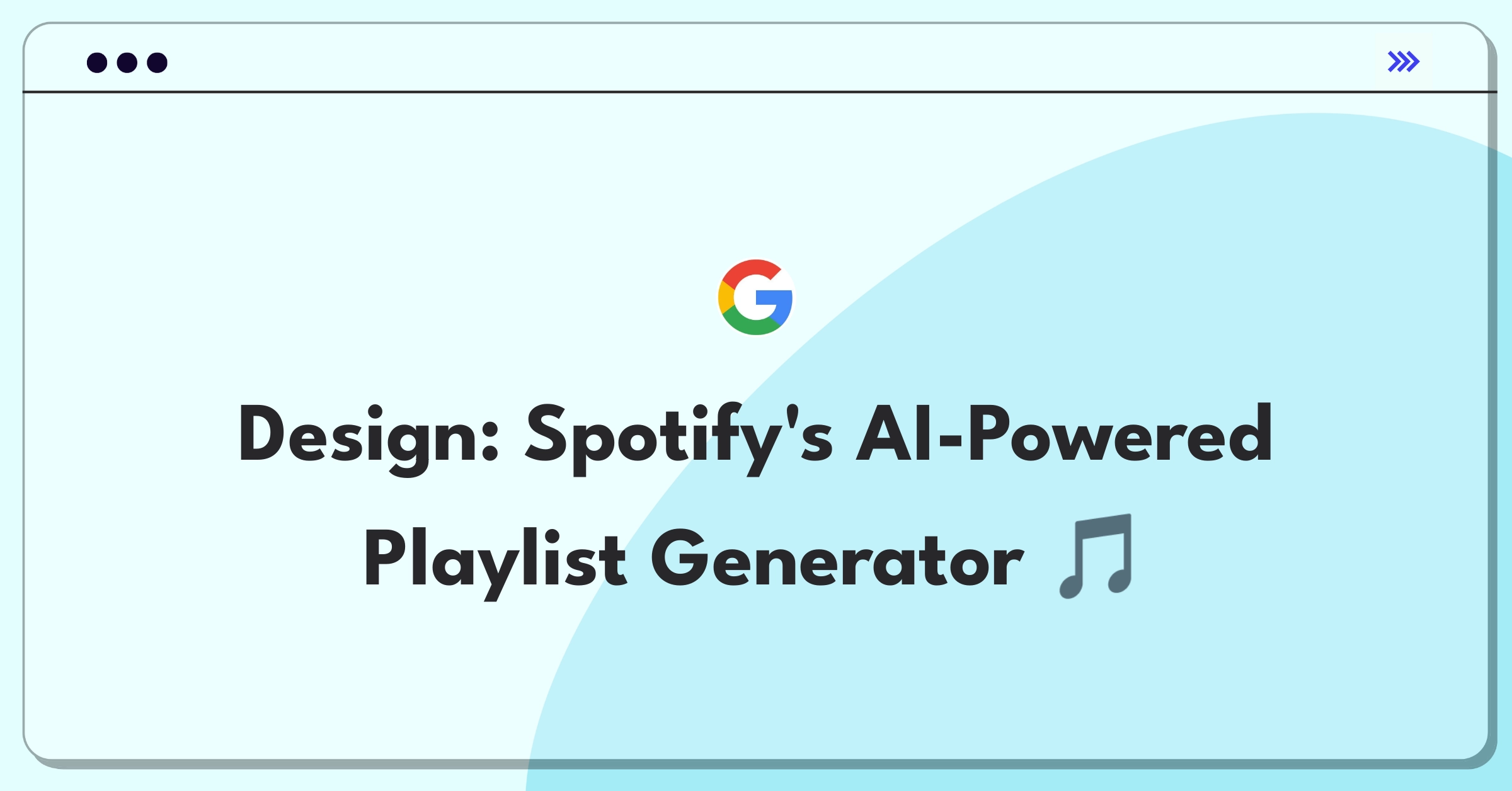Creating a Dynamic Playlist Generator for Spotify: Technical Solution and Implementation Strategy
To create a playlist for a user after they listen to a single song in Spotify, we'll implement a machine learning-based recommendation system that analyzes song attributes, user preferences, and listening history to generate a personalized playlist in real-time.
Introduction
The challenge at hand is to develop a robust, scalable system that can generate personalized playlists based on a single song input in Spotify. This feature aims to enhance user engagement and music discovery, aligning with Spotify's core mission of connecting listeners with the music they love. Our technical solution will need to balance accuracy, performance, and scalability to deliver a seamless user experience.
I'll approach this problem by first clarifying the technical requirements, analyzing the current state and challenges, proposing technical solutions, outlining an implementation roadmap, defining metrics and monitoring strategies, addressing risk management, and finally, discussing the long-term technical strategy.
Tip
Ensure that the technical solution aligns with Spotify's business objectives of increasing user engagement and retention while maintaining system performance and scalability.
Step 1
Clarify the Technical Requirements (3-4 minutes)
"Given Spotify's extensive catalog and user base, I'm assuming we're dealing with a highly scalable, distributed system. Could you provide insights into the current architecture and any specific technical constraints we should consider for this feature?"
Why it matters: Determines the feasibility of integrating new components and potential performance impacts. Expected answer: Microservices architecture with separate services for user data, music catalog, and recommendation engines. Impact on approach: Would influence how we design and integrate the new playlist generation service.
"Considering the real-time nature of this feature, what are our current performance benchmarks for similar recommendation-based features?"
Why it matters: Helps set performance targets for the new feature. Expected answer: Current recommendation features respond within 200ms for 99th percentile requests. Impact on approach: Would inform our choice of algorithms and caching strategies.
"Are there any specific data privacy regulations or company policies we need to adhere to when using user data for recommendations?"
Why it matters: Ensures compliance and informs data handling practices. Expected answer: GDPR compliance required, with user consent needed for personalized recommendations. Impact on approach: Would influence how we collect, store, and process user data for playlist generation.
"What's the current state of our machine learning infrastructure? Do we have existing models or frameworks we can leverage for this feature?"
Why it matters: Determines if we can build upon existing ML capabilities or need to develop new ones. Expected answer: Existing collaborative filtering models for general recommendations, but no specific model for single-song-based playlists. Impact on approach: Would guide our decision on whether to extend existing models or develop a new, specialized model.
Assumptions:
- We have access to detailed song attributes (genre, tempo, mood, etc.) in our music catalog.
- User listening history and preferences are available and can be accessed in real-time.
- The system should generate a playlist of approximately 20-30 songs.
- The feature should work for both logged-in and anonymous users, with different levels of personalization.
Subscribe to access the full answer
Monthly Plan
The perfect plan for PMs who are in the final leg of their interview preparation
$99 /month
- Access to 8,000+ PM Questions
- 10 AI resume reviews credits
- Access to company guides
- Basic email support
- Access to community Q&A
Yearly Plan
The ultimate plan for aspiring PMs, SPMs and those preparing for big-tech
$99 $33 /month
- Everything in monthly plan
- Priority queue for AI resume review
- Monthly/Weekly newsletters
- Access to premium features
- Priority response to requested question


.png)